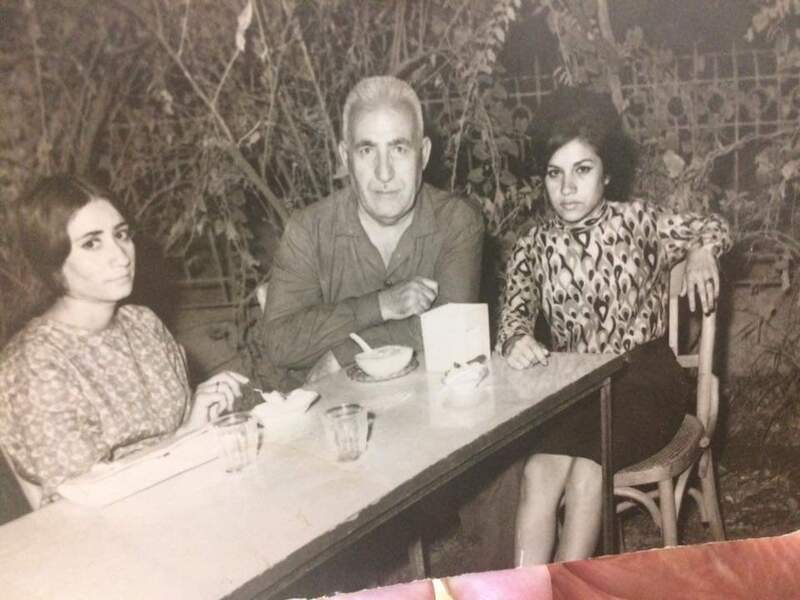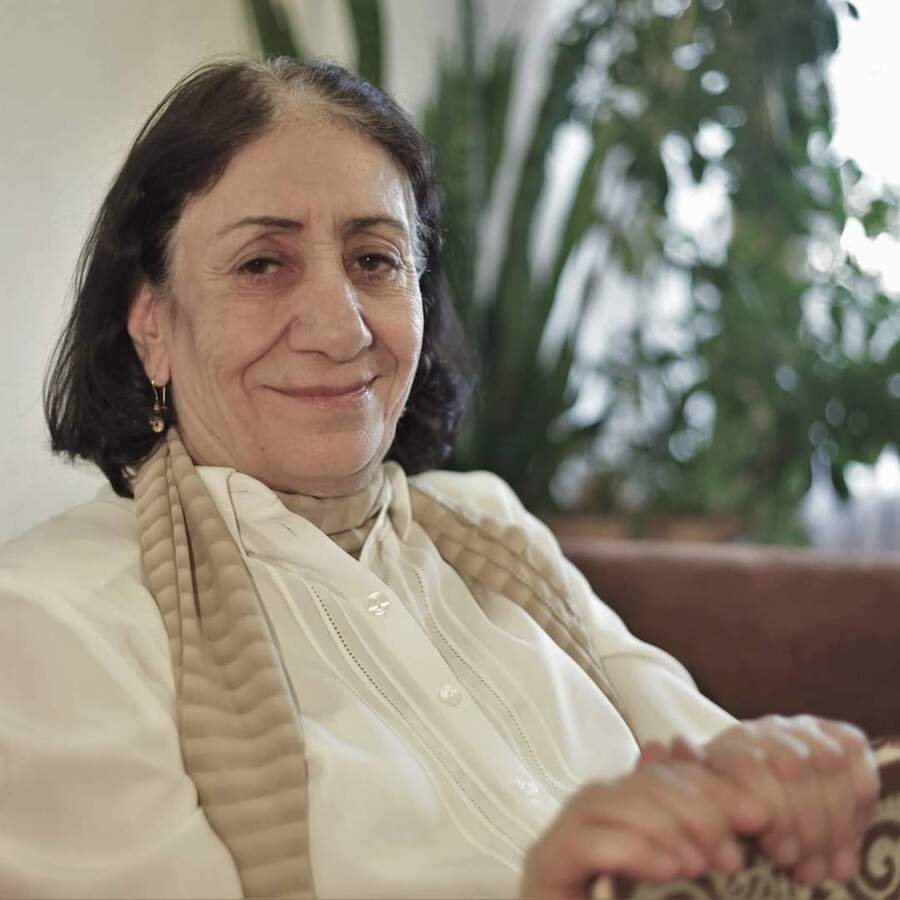Kurdish woman, writer, poet, and linguist Amina Amar (Umar) was born in 1948 in the Abre village of Qamishlo in the western part of Kurdistan.
Childhood years and learning the Kurdish Language
Like many Kurdish women, she grew up in a rural and illiterate family. At an early age, she learned the letters of the Kurdish alphabet (Kurmanji) from her cousin, Darwesh. In the world of Kurdish books, she first faced images and texts in the storybook "Mame Alan", the novel "Shvane Kurmanja", and then the poems of "Jigarkhwen". At that time and after that, she sank into the sea of Kurdish culture and language and gradually grew up with the Kurdish culture and language.
She completed her primary and secondary education in her village. She received her diploma in 1971 and later went to Sulaimani illegally. Between 1972 and 1974, she studied the Kurdish language at Sulaimani University.

Experience with Jigarkhwen's poems
As a youth, she was greatly influenced by poets such as Jigarkhwen. The spirit of the country, freedom, pain, and suffering of suppression can be seen in the context of her poems.
Like many Kurdish villages at that time, Abre was isolated from the outside world. Therefore, for the first time, the suffering of the Kurds, the oppression of the Turkish regime, the massacres and looting that have happened to the Kurds, the era of emirate and tribalism, hunger and ignorance of the Kurdish nation, division, and inequality, etc. are all known and influenced by the Jigarkhwen's poems. Amina Amar wrote on her website, "When I read 'Shahnamaya Shahidan' and 'Pira Tori', I cried a lot, I recognized the pain of slavery again and became a patriotic fighter."
She lived among intellectuals and scholars such as Mala Ahmad Nami, Mala Ahmad Shozi, Mala Tahir, and Avda Telo and read poetry, and she was very respected among them. She then meets Jigarkhwen and his daughter, Banie, and becomes friends. Jigarkhwen often took his daughter and Amina to the cinema and watched many films together, such as "Diya Hinde" and so on.
When we look at Amina's memories and experiences, we see how she went from an illiterate society to the field of language, literature, and culture.

Amina Amar is one of the Kurdish women who has been a pioneer in the field of Kurdish language, culture, and literature. She also saw her role as a woman in the fields of Kurdish poetry, poetry festivals, and literary activities in West Kurdistan. She has been awarded several times for her work and activities, including the Jigarkhwen Prize for Poetry by the General Union of Kurdish Writers and Journalists in Syria in 2019.
On the other hand, she has contributed to many magazines and newspapers with her articles and writings, including Galawezh, Penus, and Pel. Also, these days, Kurdshop (Kurdshop is an organization that serves the Kurdish language and culture and annually presents an award called the "Zara Award" to a Kurdish language and culture activist), presented the second Zara Award to her because of the work of Amina Amar who has worked for Kurdish language and culture. The Kurdish woman is now 76 and has written about 15 works on the Kurdish language, culture, poetry, and literature.
The Works of Amina Amar
- Selected Stories, Aziz Nesin, translated from Arabic, 1990.
- Khoybun, The Society of Independence, 1993.
- The female and male gender, A Research on the Kurdish Language Grammar, 2001.
- Pala Dawi, Poem Book, 2002.
- A reading entitled "Charchrayen Mzhabade" on the novel "Mzhabad" by Jan Dost.
- A study on the contents of Jamal Nabaz's book on Kurdish Etymology.
- In the subject of the Kurdish language.
- The Kurdish Etymology Dictionary on Kurmanji Dialect, Published by Nubahar Publishing House, 2014.
- Bajna Khamen Min, Poetry.
- Nubhara Bachuk u Maznan, Dictionary of Poetry.
- Baze Hevien Min, poetry.
- In terms of folklore, the story of "Eshe and Blodo", and the story of "Shange and Pange", 2003.
- For children: Keza Kezaran Khodiya Shimka Khezaran – Pire and Rovi.
- Birtannia Quling and Rovi – Gur, Rovi and Bargil.
Source and photo:
The Website of Kacha Kurd (Amina Amar)









